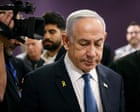
In a world continually shaped by complex political and diplomatic endeavors, recent events involving key international figures and nations highlight the delicate balance of law, diplomacy, and cooperation. These developments serve as a reminder of the interconnectedness of global issues and the ongoing efforts to navigate them thoughtfully and with care.
In Israel, the prominent and long-standing corruption trial of Prime Minister Benjamin Netanyahu has recently experienced a pause. A local Israeli court has heeded the Prime Minister’s request for a delay, citing significant diplomatic and security concerns. This decision underscores the intricate ties between legal proceedings and a nation’s security landscape, particularly under the pressures that high-level government officials face. The original plea acknowledged the essential nature of certain classified engagements, indicating that the matters at hand required Netanyahu’s undivided attention.
The delay has drawn notably measured responses, with some political figures urging a dismissal of the case entirely, reflecting varied perspectives on the intersection of legal and national interest. This halt offers a moment to consider the broader implications of governance when legal challenges coincide with pressing state matters, encouraging a reflection on the priorities and responsibilities inherent in leadership roles.
Moving on to the realm of international sanctions, Ukraine’s President Volodymyr Zelensky has expressed a robust commitment to aligning with Europe on potential sanctions against Iran. In describing Iran as one of the “most brutal regimes,” Zelensky highlighted the shared values and objectives that bind Ukraine to its European partners. This articulation of common purpose is a testament to the enduring strength of international alliances in addressing global challenges. It emphasizes a collective effort to uphold human rights and maintain peace, reinforcing the importance of unity in the face of complex geopolitical landscapes.
Zelensky’s pursuit of coordinated action reflects a diplomatic strategy focused on consensus and collaboration, illustrating how shared values can guide nations in confronting and addressing global concerns. This alignment serves as an example of how countries navigate international relations through a mindful approach, focusing on dialogue and partnership.
Meanwhile, diplomatic relations between Mozambique and Spain have been further strengthened following a significant meeting in Seville. President Daniel Chapo of Mozambique and King Felipe VI of Spain engaged in discussions aimed at deepening cooperation across various sectors. This diplomatic endeavor underscores the mutual desire to enhance bilateral relations and explore areas of common interest, contributing to a stronger and more cooperative international community.
The meeting highlighted a “common will” to reinforce ties, reflecting an ongoing commitment to partnership that transcends regional and cultural boundaries. In an age where cooperative efforts are crucial, such dialogues foster growth and collaboration, underscoring the importance of diplomatic engagement as a cornerstone for progress and development.
Collectively, these developments reflect the intricate web of international relations, where legal, diplomatic, and cooperative efforts intersect. They call for a mindful contemplation of how nations engage with one another, addressing their shared challenges through careful negotiation and mutual respect.
As such events continue to unfold, they remind us of the delicate balance required to maintain peace and progress on a global scale. Through calm and thoughtful engagement, leaders around the world navigate complex landscapes, striving to find harmonious paths forward for their nations and the global community at large.
Source: {link}
